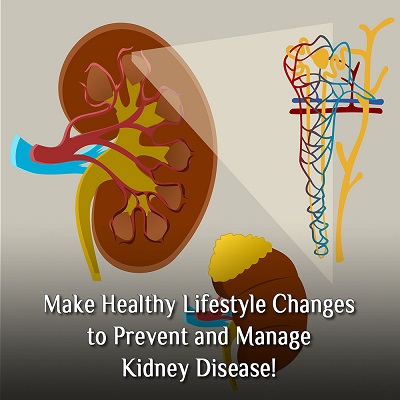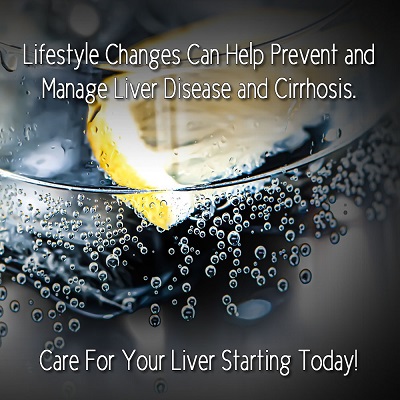Lifestyle Changes to Prevent Disease
 Kidney disease pertains to the loss of function of the kidneys, which can happen slowly over time. With damaged or diseased kidneys, your body can not remove wastes from your blood efficiently. The wastes build up and can lead to complications, such as high blood pressure, nerve damage, anemia, and weakened bones.
Kidney disease pertains to the loss of function of the kidneys, which can happen slowly over time. With damaged or diseased kidneys, your body can not remove wastes from your blood efficiently. The wastes build up and can lead to complications, such as high blood pressure, nerve damage, anemia, and weakened bones.
Symptoms, Causes and Risk Factors
Recognizing the symptoms and knowing the causes and risk factors of kidney disease can also help you prevent and manage it.
Kidney disease often has no symptoms in the early stages. If it has progressed, you may experience vomiting, frequent urinating (either through the day or at night), swelling in the ankles, loss of appetite and losing weight unexpectedly, and difficulty sleeping. Continue reading
 The liver is an essential organ that aids in the digestion of food to distribute nutrients to the body, and filters and removes toxins. It’s also the largest organ inside the body, about the size of a football, so it’s worth taking care of!
The liver is an essential organ that aids in the digestion of food to distribute nutrients to the body, and filters and removes toxins. It’s also the largest organ inside the body, about the size of a football, so it’s worth taking care of!
Various factors can damage the liver, including viruses, drugs, alcohol, obesity, and genetics. When severe, the damage can lead to scarring, called cirrhosis. Cirrhosis is life-threatening because it can cause liver failure.
Liver diseases and cirrhosis can develop due to hepatitis viruses and other infections that can spread through contaminated water, blood, food, and respiratory particles. Autoimmune diseases and genetics can also lead to liver damage. Other risk factors include obesity, type 2 diabetes, and exposure to harmful chemicals and toxins. Continue reading






